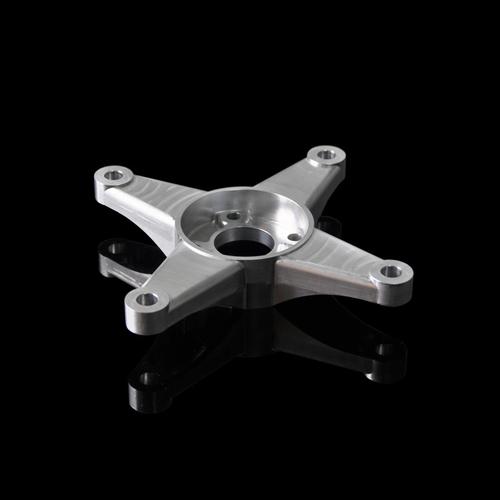Handling the Complexity of Aerospace Part Designs: The Capabilities of CNC Machines
2024-04-17
In the aerospace industry, the design and manufacturing of precision parts are nothing short of an art form. Aerospace parts are often highly complex, requiring intricate shapes, contours, and features that demand the utmost precision and accuracy. This is where Computer Numerical Control (CNC) machines come into play, handling the complexity of these designs with ease and precision.
CNC machines are highly advanced manufacturing tools that use computer software to control the movement of cutting tools. They are programmed with the specific design data of the part, which is typically generated using CAD (Computer-Aided Design) software. This design data includes all the geometric and dimensional information necessary to create the part, down to the finest detail.
When handling the complexity of aerospace part designs, CNC machines excel in several key areas. Firstly, they possess the ability to perform highly precise cutting operations. CNC machines can control the movement of their cutting tools with incredible accuracy, ensuring that every cut and contour is executed precisely as designed. This precision is crucial in aerospace applications, where parts must meet strict tolerances and fit within tight spaces.
Secondly, CNC machines are extremely versatile. They can be programmed to perform a wide range of cutting operations, including milling, drilling, and turning, among others. This versatility allows them to handle the diverse range of shapes and features found in aerospace part designs. Whether it's a complex curve, a delicate thread, or a deep cavity, CNC machines can tackle it with ease.
Furthermore, CNC machines are highly automated. Once the design data is loaded into the machine, it can operate independently, performing the necessary cutting operations without human intervention. This automation not only increases efficiency but also reduces the potential for human error, further enhancing the accuracy of the manufacturing process.
CNC machines also offer repeatability, meaning they can produce identical parts with consistent quality. This is crucial in the aerospace industry, where parts often need to be interchangeable and meet strict quality standards.
In addition, modern CNC machines are equipped with advanced features such as tool compensation and adaptive control. Tool compensation automatically adjusts for wear and tear on the cutting tools, ensuring consistent cutting performance over time. Adaptive control, on the other hand, allows the machine to adjust its cutting parameters in real-time based on feedback from the cutting process, further optimizing the manufacturing process.
In conclusion, CNC machines are capable of handling the complexity of aerospace part designs with precision, versatility, automation, repeatability, and advanced features. They are indispensable tools in the aerospace industry, enabling the efficient and accurate production of precision parts that meet the strict demands of this critical sector.



